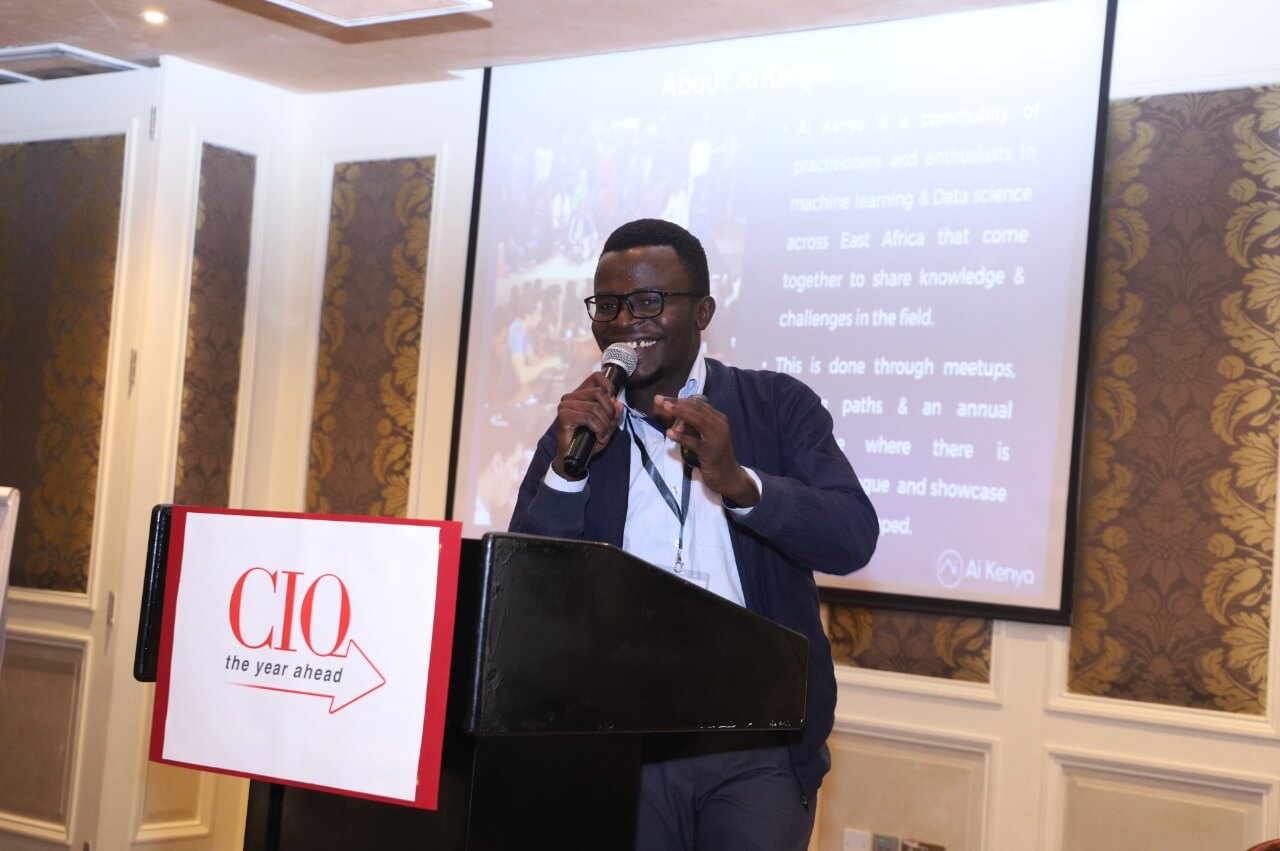advertisement
Why 2019 is the year of AI and ML
There was a steady dribble of early acquisition of Artificial Intelligence (AI) and Machine Learning (ML) in various enterprises in 2018 a…

There was a steady dribble of early acquisition of Artificial Intelligence (AI) and Machine Learning (ML) in various enterprises in 2018 a position that seemed as one that would slacken the frequency of entities who would accelerate to deploy them in 2019, Alfred Ongere, Founder AI Kenya said during the CIO Year Ahead Forum held in Nairobi, Kenya today.
Citing why 2019 would be the year to watch in respect to AI and data science, Ongere said that the situation emanates from rampant hype and attention that AI received in 2018 yet more local organizations were still in the dark or misunderstand what the technology entailed and how it works. More organizations will invest in both AI and ML to meet customer experience.
Ongere pointed out that AI is field of computer science and engineering concerned with the computational understanding of what is commonly called intelligent behavior, and with the creation of artifacts that exhibit such behavior.
advertisement
The forum themed: Driving Innovations in Organizations learnt from Ongere that much happened in the AI space worldwide in 2018 among the leaps being the launch of Safaricom’s Jitambuishe – Voice Recognition Service in January.
Related to Safaricom’s Jitambulishe initiative was AADHAR in India that uses facial recognition to authenticate customers. Launched in March last year, the India biometric system, AADHAR enables facial recognition to be used during issuance of mobile sim.
In March, Cambridge Analytica admitted to have harvested personal data of millions of people’s Facebook profiles without their consent and used it for political purposes.
advertisement
Christopher Wyllie, former Cambridge Analytica Research Director admitted that it was a big err for the organization to mine data without people’s consent. ’If you run campaigns designed to undermine people’s ability to make free choices and to understand what is real and not real, you are undermining democracy and treating voters in the same way as you are treating terrorists,’’ said Wyllie.
Walking the delegates down the memory lane Ongere pointed out that as much as there were great leaps in AI and Machine Learning, there were jolts experienced among them being a Tesla driving in “autopilot” mode crashing in March when the vehicle sped up and steered into a concrete barrier.
In 60 seconds prior to the collision, the driver also had his hands on the wheel on three separate occasions, though not in the final six seconds, according to the agency. As the car headed toward the barrier, there was no “pre crash braking” or “evasive steering movement”.
advertisement
The month of March proved quite active as Uber Movement launched in Nairobi a ride data that can be queried and downloaded for analysis and innovation.
Uber Movement is a website that helps urban planners, city leaders, riders, innovators, developers and the public better understand the transportation needs of their cities. It includes filters for specific dates and times, allowing users to investigate the impact of occurrences such as floods and electoral processes on traffic.
With this leap, Nairobi joined three other Africa major cities: Pretoria, Johannesburg and Cairo whose past historical data was included in the website.
On the low-side, in July, Amazon’s new facial recognition service was incorrectly identifying 28 members of congress as criminals. Amazon’s Rekognition initiative that was associated with identification of ‘criminals’ in the US hit a set-back since it largely picked people with darker complexion as criminals. “If ReKognition were to be introduced in Kenya, it could erroneously identify 90 percent of Kenyans as criminals,” Ongere observed amid laughter from delegates.
Amazon employees demanded that recognition software not to be used by Law enforcement agencies. Rekognition which was at its core as an API for deep learning-based analysis to detect, track, and analyze people and objects in videos had a setback.
Amazon’s employees stated that they do not agree to have their work used for purposes that could target marginalized groups. The letter also cited the United States government’s practice of separating children away from their parents at the border as a key reason why Amazon should cancel its contract with law enforcement agencies.
According to Ongere, the move by organizations to market their products by positioning them as “powered by AI” has been a quick selling point for technology providers who want to make their products or solutions more attractive to consumers.
During the inspirational presentation that highlighted the Cambridge Analytica and Facebook scandal to the recent Safaricom’s innovative launch of Jitambulishe, Ongere noted that big events are lined to still shape the advancement and adoption of AI & Data Science in the country and on an international scale.
“These major events present a pivotal learning opportunity for organizations and businesses as they delve into using AI & Data Science in their businesses or services they provide,” he said adding: “Much concern and attention should be paid to how these technologies affect the end-users in general.”
Peering into 2019 Ongere noted that two major events; World AI Show and Deep Learning Indaba happening in Nairobi in March and August respectively indicate that Kenya has been identified as a worthwhile market for huge adoption and development of solutions in the field of AI. “This is the year to embrace and to start getting ready for the AI & Data science,” said Ongere quipping: “This is the year of AI & Data science.”